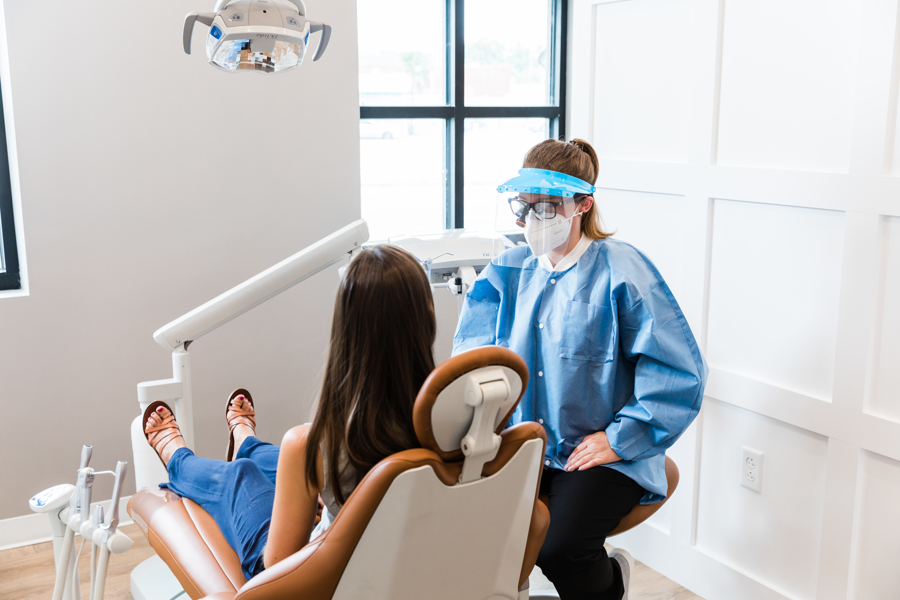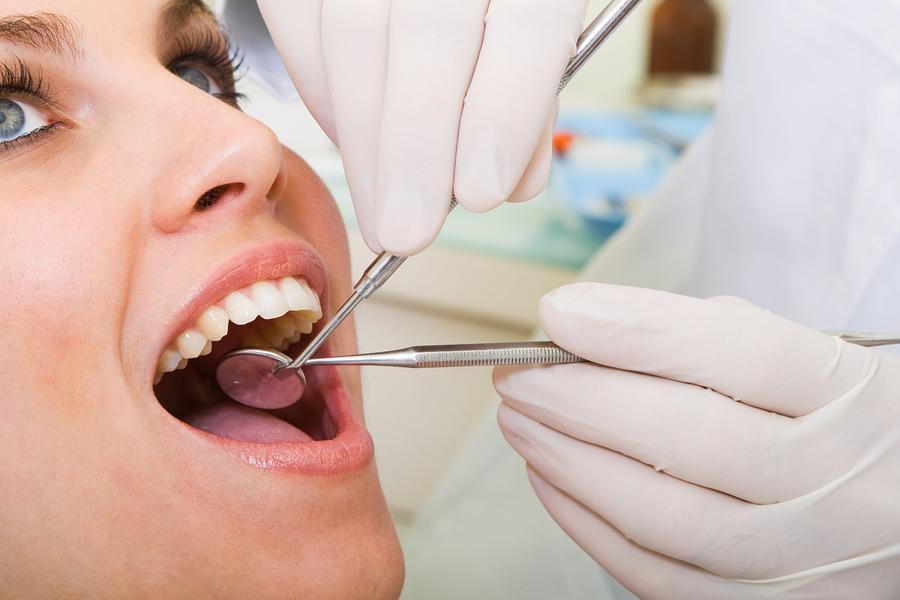Meet Your Pleasant Area Dentist Eugene OR and Their Providers
Meet Your Pleasant Area Dentist Eugene OR and Their Providers
Blog Article
A Guide to Usual Oral Conditions That Require a Dental practitioner's Care
Toothaches, for instance, can be symptomatic of severe issues such as dental caries, cracked teeth, or abscesses, each needing particular treatments like fillings or origin canals. Affected wisdom teeth and jaw disorders can present significant pain and difficulties.
Toothaches
Toothaches are a common oral condition that can vary from light discomfort to severe pain, typically showing an underlying concern that calls for specialist attention. This pain can stem from a variety of resources, consisting of tooth decays, split or fractured teeth, and oral abscesses. Each of these conditions poses considerable risks if left untreated, potentially causing extra serious difficulties.
Dental cavities, additionally known as cavities, are created by the accumulation of plaque that deteriorates tooth enamel, leading to holes or pits in the impacted teeth. Abscesses are uncomfortable infections at the root of a tooth or in between the gum and a tooth, typically resulting from serious degeneration or unattended tooth cavities.
Effective therapy of toothaches entails dealing with the origin. This may include dental fillings for tooth cavities, crowns for cracked teeth, or origin canals and prescription antibiotics for abscesses. Early intervention by a dental specialist can avoid more deterioration and alleviate discomfort, guaranteeing optimal dental wellness.
Gum Illness
Gum tissue disease, a prevalent yet usually forgotten dental problem, manifests through swelling and infection of the gum tissues and supporting cells. This condition largely happens in two phases: gingivitis and periodontitis. Gingivitis, the milder form, offers with signs such as red, puffy gums that might hemorrhage easily throughout brushing or flossing. If left untreated, gingivitis can advance to periodontitis, an extra serious form characterized by the destruction of the supporting bone and connective tissue, ultimately leading to missing teeth.
The main source of gum condition is bacterial plaque, a sticky, anemic movie that continuously develops on teeth. Poor oral hygiene, smoking, genetic predisposition, and specific medical problems, such as diabetes, can worsen the risk of developing periodontal illness. Regular dental examinations are crucial for very early discovery and administration of this condition.
Therapy for gum disease varies from specialist oral cleaning and scaling to even more sophisticated procedures like root planing and periodontal surgical treatment, relying on the intensity. Maintaining good oral hygiene techniques, consisting of brushing two times daily, flossing, and using a disinfectant mouthwash, can dramatically decrease the danger of gum tissue disease and promote healthier gum tissues.
Tooth Cavities
Cavities, also called tooth decays, are an usual dental condition characterized by the damage of tooth enamel as a result of acid-producing germs in the mouth. These germs thrive on sugars and starches from food and drinks, creating acids that slowly erode the enamel, bring about tooth cavity development.
Early-stage cavities may not show signs, but as they advance, they can create tooth pain, level of sensitivity to warm or cold, visible holes or pits in the teeth, and staining. If left unattended, cavities can permeate much deeper layers of the tooth, potentially resulting in extreme pain, infection, and also tooth loss.
Preventing dental caries includes a mix of great dental hygiene methods and nutritional practices. Regular brushing with fluoride toothpaste, flossing, and regular dental check-ups are essential. Dental experts may likewise advise added precautionary actions, such as fluoride therapies and dental sealants, to safeguard teeth from decay.
Therapy for dental caries relies on their severity. Small tooth cavities can be addressed with oral fillings, which recover the tooth's structure. Advanced cases might need crowns or even root canal therapy if the degeneration has actually reached the tooth's pulp. Prompt treatment by a dental practitioner is necessary to prevent issues and preserve overall dental health.

Impacted Knowledge Teeth
Influenced knowledge teeth are a widespread dental concern that happens when the 3rd molars, commonly described as wisdom teeth, fail to totally emerge or straighten properly within the mouth. This problem commonly results from insufficient room in the jaw or an unusual development angle of the teeth. Influenced knowledge teeth can lead to a range of problems, including infection, pain, and damages to surrounding teeth.
When wisdom teeth become influenced, they are often partially appeared or remain totally under the gum line. This partial eruption can create a path for bacteria to enter the gums, resulting in infections that show up as swelling, discomfort, and even high temperature. Additionally, impacted knowledge teeth can apply pressure on surrounding teeth, possibly causing crowding or shifting.
A thorough dental assessment, usually entailing X-rays, is crucial for identifying influenced knowledge teeth. Treatment frequently includes surgical removal, executed by an oral surgeon. The treatment aims to reduce pain and avoid additional difficulties, such as cysts or damage to surrounding bone frameworks. Post-operative treatment is critical to make sure correct recovery and minimize the danger of infection. Normal oral check-ups are recommended to keep track of the condition and keep dental wellness.
Jaw Disorders
Jaw conditions, collectively understood as temporomandibular joint (TMJ) disorders, encompass an array of conditions that influence the jaw joint see this page and surrounding muscles. These conditions can manifest through signs and symptoms such as discomfort or tenderness in the jaw, problem eating, a standing out or clicking sound when closing the mouth or opening, and even persistent frustrations. TMJ conditions can occur from numerous factors, consisting of joint inflammation, jaw injury, or habitual actions like teeth grinding or jaw clenching.
Diagnosis of TMJ disorders normally entails a thorough analysis by a dentist, including a physical evaluation of the jaw, dental X-rays, and in some cases progressed imaging strategies like MRI or CT scans to examine the joint's condition. Non-invasive techniques such as physical therapy, dental splints, and medications intended at lowering swelling and pain are commonly first-line therapies.
Early intervention by an oral specialist is critical to stop the development of TMJ conditions and to preserve overall oral wellness. People experiencing persistent jaw discomfort or disorder ought to look for punctual examination and treatment.
Conclusion
Maintaining dental wellness requires prompt specialist like address usual dental conditions. Toothaches frequently show underlying problems such as cavities, cracked teeth, or abscesses, calling for timely treatment. Gum disease, from gingivitis to periodontitis, needs normal dental examinations and cleanings to avoid development. Impacted wisdom teeth and jaw disorders additionally need specialist attention to relieve discomfort and prevent additional complications. Normal dental visits are necessary for diagnosing and treating these conditions, guaranteeing overall oral health and wellness.
Dental tooth cavities, also recognized as caries, are created by the build-up of plaque that erodes tooth enamel, leading to holes or pits in the impacted teeth. Abscesses are unpleasant infections at the root read more of a tooth or in between the gum tissue and a tooth, generally resulting from extreme browse around these guys decay or without treatment dental caries.

In addition, affected knowledge teeth can exert pressure on bordering teeth, potentially triggering crowding or changing.
Report this page